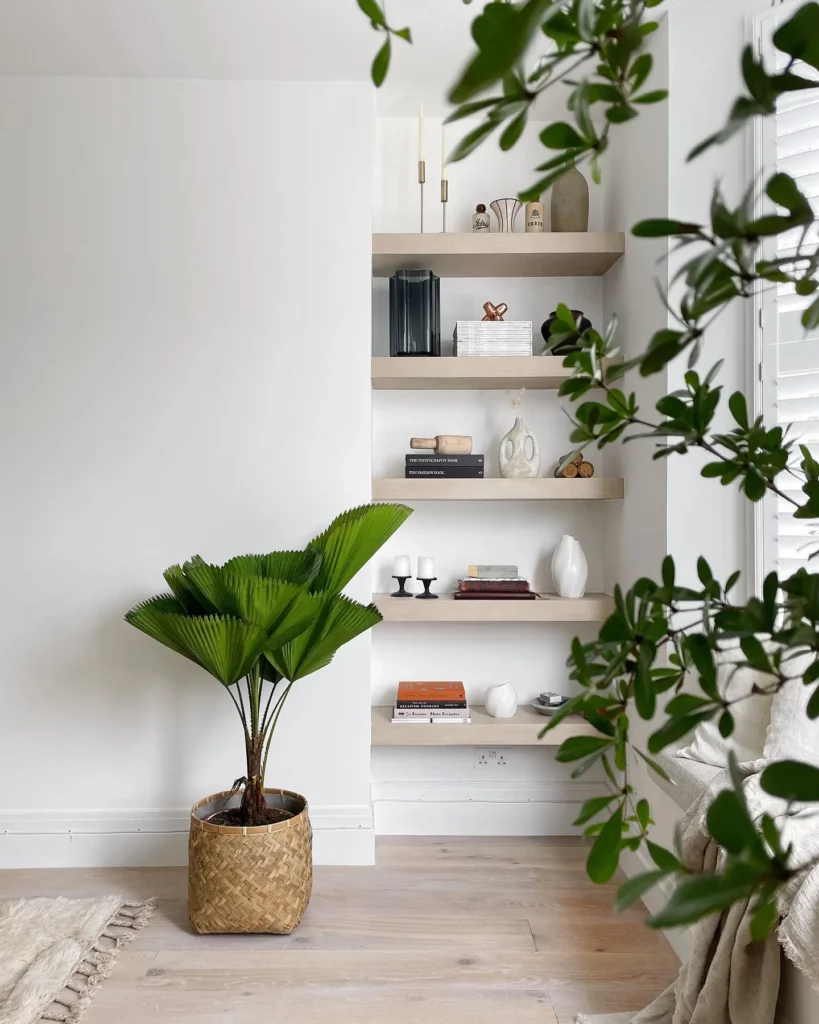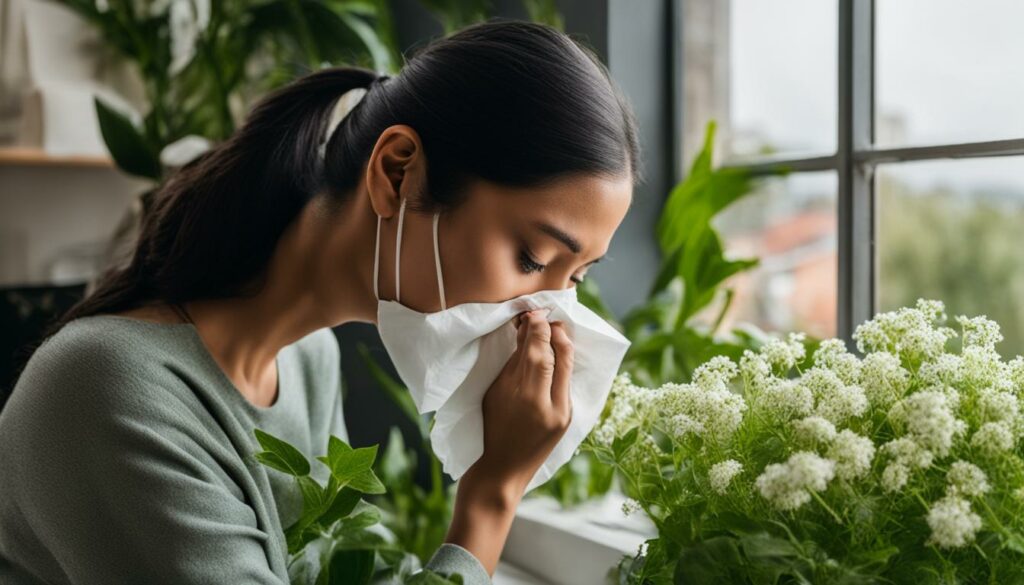Houseplants can improve air quality and are not typically allergenic, but it’s a myth that all are beneficial for allergies as some may harbor mold or pollen.
Houseplants can be a beautiful and beneficial addition to any home, but for allergy sufferers, they can also be a source of concern. With so much conflicting information out there, it can be challenging to separate fact from fiction when it comes to houseplants and allergies.
No products found.
Understanding Indoor Allergies and Their Causes

Indoor allergies are a common problem for many people, often causing symptoms such as sneezing, congestion, and itching. These allergies can be triggered by a variety of factors, including the presence of common allergens in the home.
No products found.
Some of the most common indoor allergens include:
- Dust mites
- Pet dander
- Mold
- Pollen
Myth: Houseplants Aggravate Allergies

There is a common myth that houseplants worsen allergies, but this is not entirely accurate. While it’s true that some houseplants may trigger allergic reactions in certain individuals, there is no direct evidence linking houseplants to worsening allergies in general.
In fact, some research suggests that houseplants may have a positive impact on indoor air quality and reduce the presence of allergens in the home. However, it’s important to note that not all houseplants are created equal, and some may be more likely to contribute to allergies than others.
No products found.
In general, if an individual is allergic to a specific plant species, it’s best to avoid having that plant in their home. Additionally, proper care and maintenance can further reduce the risk of allergic reactions.
Regularly cleaning and dusting leaves, avoiding overwatering, and providing adequate sunlight can help keep houseplants healthy and minimize the release of allergens into the air.
Ultimately, the relationship between houseplants and allergies is complex, and the effects can vary widely depending on individual circumstances. It’s important to weigh the potential benefits and drawbacks before deciding whether to incorporate houseplants into your home environment.
Fact: Houseplants Can Improve Indoor Air Quality

While often seen as mere home decor, houseplants play a crucial role in improving indoor air quality. Plants absorb carbon dioxide and release oxygen, making them natural air purifiers. However, their air-purifying capabilities go beyond basic gas exchange, as houseplants can also filter out harmful indoor air pollutants.
Common indoor air pollutants, such as volatile organic compounds (VOCs), can be found in everyday household items like cleaning products and paint. These pollutants can worsen allergies and cause respiratory problems. Fortunately, houseplants can absorb and break down these harmful chemicals, providing a healthier living environment for occupants.
It’s important to note that not all houseplants are equally effective at removing indoor air pollutants. In fact, a NASA study found that certain plant species are particularly adept at filtering out harmful chemicals.
Some examples of these plants include aloe vera, spider plant, and peace lily. By choosing the right houseplants and placing them strategically throughout the home, individuals can experience cleaner indoor air and improved overall health.
Myth: All Houseplants Trigger Allergies

Contrary to popular belief, not all houseplants trigger allergies. Understanding the differences between common indoor allergens and houseplant-specific allergens can help individuals with allergies determine which houseplants are safe for them.
Indoor allergens, such as pet dander, dust mites, and mold, are common culprits of allergies. While some houseplants can produce pollen or emit volatile organic compounds (VOCs), which can be allergenic, there are many houseplants that are considered safe for individuals with allergies.
Factors such as the size, scent, and texture of houseplants can determine their potential to cause allergic reactions. Generally, plants with larger, waxy leaves and little to no scent are less likely to cause allergies compared to plants with small, hairy leaves and strong aromas.
It is important to note that even with non-allergenic houseplants, individuals with severe allergies may still experience allergic reactions. It is recommended to introduce new houseplants gradually and monitor any allergic symptoms.
Fact: Certain Houseplants Are Allergy-Friendly

Contrary to popular belief, not all houseplants trigger allergies. In fact, several plant species are hypoallergenic and considered allergy-friendly. Some of the best options for allergy sufferers include snake plants, ferns, and peace lilies, which have low levels of pollen and other plant proteins that can cause allergic reactions.
When selecting hypoallergenic plants, consider their care requirements and suitability for your home environment. For example, peace lilies prefer lower light conditions, while ferns require more humidity. Proper care and maintenance can also help minimize potential allergens, such as regular watering, pruning, and cleaning of leaves and soil.
- Snake plant
- Ferns
- Peace lilies
Myth: Houseplants Can Completely Eliminate Allergens

While it is true that houseplants can help reduce indoor allergens, they cannot completely eliminate them. Houseplants do not have the ability to filter out all types of allergens from the air, such as animal dander, dust mites, and mold spores. Additionally, the concentration of allergens in the air can vary depending on factors such as humidity and air circulation.
It’s important to note that relying solely on houseplants for allergen elimination may not be sufficient, especially for individuals with severe allergies. However, houseplants can be a useful tool when used in conjunction with other methods of allergen reduction.
Alternative methods for effectively reducing indoor allergens include regular cleaning routines, using air purifiers with HEPA filters, and maintaining proper ventilation. By combining these methods with carefully selected houseplants, individuals with allergies can create a healthier living environment.
Fact: Proper Care and Placement Can Minimize Allergies

For individuals with allergies who want to enjoy the benefits of houseplants, proper care and placement are crucial. Here are some important houseplant care tips to minimize allergic reactions:
- Choose plants carefully: If you have allergies, consider selecting houseplants with hypoallergenic properties. Avoid plants that are known to trigger allergic reactions.
- Keep plants clean: Regularly wipe down leaves with a damp cloth to remove dust and dirt that can accumulate and trigger allergies.
- Control humidity: Too much moisture can promote mold growth, which can trigger allergies. Use a dehumidifier or ensure adequate ventilation in your home to keep humidity levels in check.
- Place plants strategically: Avoid placing houseplants in areas that tend to collect dust, such as near doors or windows. Choose areas with good air circulation, such as near a fan or open window.
- Use caution with soil: Potting soil can also harbor allergens like mold. Keep plants in well-draining pots and use a layer of gravel or activated charcoal in the pot to absorb excess moisture.
- Avoid overwatering: Overwatering can lead to mold growth and attract pests that can trigger allergies. Follow plant-specific watering guidelines and ensure pots have adequate drainage.
By following these houseplant care tips, individuals with allergies can enjoy the many benefits of houseplants while minimizing their risk of allergic reactions. Remember, it’s important to choose plants carefully and keep them clean and properly maintained to ensure a healthy, allergy-free home.





